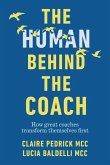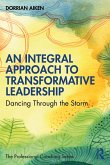Coaching is the process of helping people and teams to perform at the peak of their abilities. It involves drawing out people's strengths, helping them to bypass personal barriers and limits in order to achieve their personal bests, and facilitating them to function more effectively as members of a team. Historically, coaching has been focused toward achieving improvement with respect to a specific behavioral performance. This involves promoting the development of that person's behavioral competence through careful observation and feedback. In recent years, the notion of coaching has taken on a more generalized and expanded meaning. Personal coaching, executive coaching and life coaching provide support on a number of different levels: behaviors, capabilities, beliefs, values, identity and even spiritual. These new and more comprehensive forms-executive coaching and life coaching- can be referred to as capital "C" Coaching. Large "C" Coaching involves helping people effectively achieve outcomes on a range of levels. We guide people to learn about new environments, for instance; coach them to improve specific behavioral competencies; teach them new cognitive capabilities; mentor empowering beliefs and values; sponsor growth at the identity level; and awaken people's awareness of the larger system or "field." This book defines the types of contexts and situations which require the capital "C" Coach to focus on one of these roles-caretaker, guide, coach, teacher, mentor, sponsor, awakener-and provides a specific toolbox for each role. In other words, it provides a comprehensive tool set to be used by an effective coach to manage the entire scope of large "C" Coaching activities-from caretaking to awakening.
Hinweis: Dieser Artikel kann nur an eine deutsche Lieferadresse ausgeliefert werden.
Hinweis: Dieser Artikel kann nur an eine deutsche Lieferadresse ausgeliefert werden.








